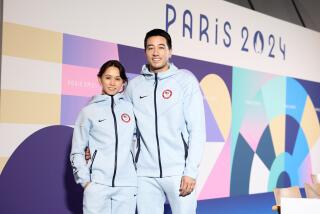Fencing may help improve some cognitive functions in older people
With maturity comes some cognitive declines. But a few sports might provide enough of a mental challenge to curb that age-related wear and tear, a study finds.
Researchers focused on young and old fencers to see if the activity was effective in counteracting some cognitive deterioration that happens to people as they age. Fencing was chosen because it’s considered an open-skill sport, one in which players have to adapt their movements due to a changing environment -- in this case, a constantly moving opponent.
The study authors added that players must make quick decisions while engaged in the sport, and there’s a great deal of emphasis placed on visual attention and flexibility. The sport trains a number of cognitive functions, including planning, cognitive flexibility, initiating appropriate actions and holding back inappropriate actions.
Forty participants were divided into four groups: 10 older fencers (average age about 50), 10 younger fencers (average age about 24), and 10 older and younger non-athletes who were matched for age and other demographic characteristics.
Each person was tested on two reaction tasks that involved targets and mimicked some of the cognitive functions used in fencing. Researchers found that overall, younger participants did better than older ones, and athletes did better than non-athletes. Although the older people had slower reaction times compared to younger people, their accuracy in the tests was the same.
The researchers also discovered that participating in fencing was linked with less of an age-related cognitive decline. Older fencers did better than their non-athletic peers on measures of attention and processing.
The study was published online recently in the journal Medicine & Science in Sports & Exercise.






